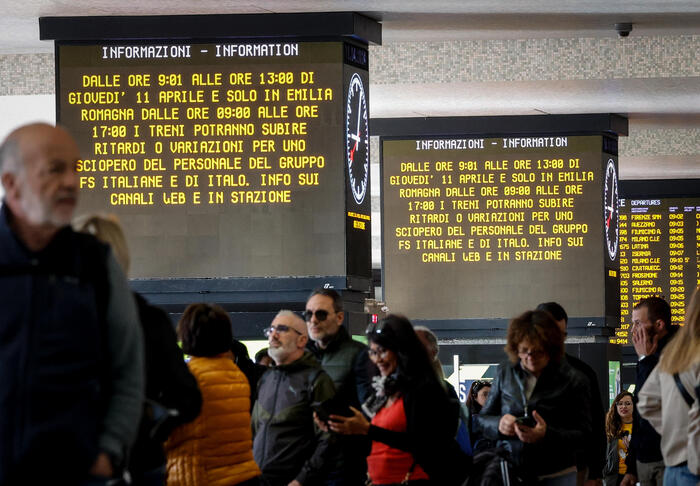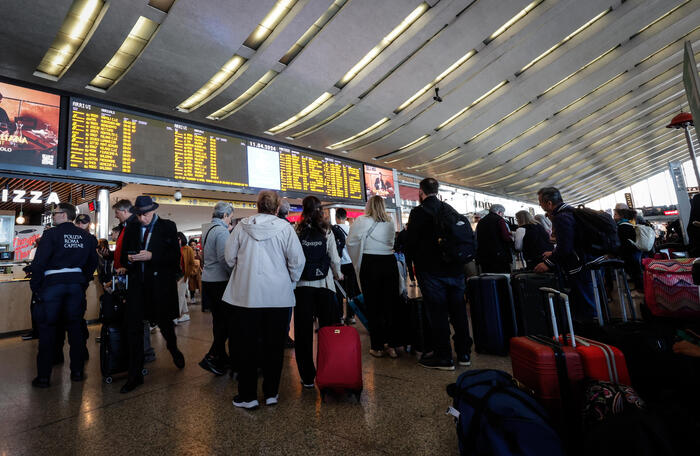The stakes are high.
If all the territorial agents actually worked the 35 hours - that is 1607 hours per year - this would be equivalent to 50,000 full-time agents per year.
Today, the average working time in communities is 1,553.7 hours per year.
In fact, the 35 hours have never really been applied in communities.
The executives had a derogation to keep the lower working time regimes from which they benefited since law n ° 84-53 of January 26, 1984. Thus, local public officials accumulate nearly 40 reasons for derogatory leave including the days of mayor, days off for moving or even days for “
back to school
”.
Read also: Why is the number of civil servants not decreasing?
Since the 2019 law on the transformation of the civil service, local authorities have been ordered to apply (finally) the 35 hours. After each election, the local executives have one year to negotiate with the social partners a new deliberation on the working time of their agents. At the latest, the agreement must be effective for the municipalities on January 1, 2022 and for the departments and regions on January 1, 2023.
According to the National Association of Regional HRDs, at the end of 2019, 43% of communities already comply with the 1607 hours. Thus, in Marseille where the issue of underwork (up to 900 hours per year in certain departments) has been pointed out many times by the Regional Chamber of Accounts (a judicial investigation on the subject is underway), the time to agents' work has already been raised to 1607 hours. Same thing in Lyon: after being pinned down by the Regional Chamber of Accounts for an average working time of 1,571 hours, the city adopted a deliberation fixing the legal annual working time at 1,607 hours since December 2015. Many small and medium-sized companies municipalities have already passed to 1607 hours: Gières, Millau, Neuilly-Plaisance, Nort-sur-Erdre, Landser and Couëron, Châtellerault, Orléans ....
Agent unions push to circumvent the legal rule
The unions are asking for "
subjection
" for hardship, discharges to circumvent the law.
The CGT even calls for the outright repeal of the text.
So some towns procrastinate.
In Paris, where strikes are increasing, 8 days of leave would be at stake. The human resources assistant for the city of Paris has already requested a postponement of the law (refused by the ministry).
It even proposes to "
modify the work cycle to generate additional RTTs
"While the agents of the city of Paris already have 33 days of leave and 22 days of RTT ... In Toulouse, where the strikes also continue, ten days of leave are at stake. In Rennes, where 3, 5 days of leave are suspended, the unions ask for a compensatory bonus of 300 to 350 euros for the agents.
Read also: The working time of civil servants is lower everywhere than the 35 hours
Nantes has signed an agreement that seems to want to spare the goat and the cabbage: a working time of 1607 hours with 2 "
days of splitting
" which can drop the effective working time of some agents to 1547 hours per year. Some towns in Val-de-Marne, for example Bonneuil-sur-Marne, have decreed that they would not seek to apply the 1607 hours and that they were prepared to go to the administrative tribunal.
It would then be the prefects who would regain control by automatically removing the days off from the derogatory regimes on January 1, 2022. A subject to be followed very closely in 2022 and 2023. All the more so after the unfortunate experience of 2012 and the elimination of the waiting day in the public sector by the Dutch government upon coming to power ...








